Feminine Vs. Masculine
Lo femenino vs. lo masculino
Lorís Simón Salum
When I was 19 years old, my mother asked me to join her in a women’s retreat from the Marion Woodman Foundation in a magical place called Tepoztlán in Mexico. It sounded mysterious, intriguing and sort of sect-like, which made it all the more attractive. Of course I accepted the offer. At the time I remember being a hot mess, struggling between losing weight, finding a boyfriend, and sadly, there is nothing more I can add to that list.
We worked from 9 am to 9 pm every day for an entire week. It was exhausting. I will refrain from trying to explain the exercises and conversations we had in fear of losing the power they held within me. I will say, however, it moved me in ways I had never been moved before.
Years later, I could not let this experience go; I grew passionate about women, gender and feminism. There was a part of me that hoped: if all women could undergo this same change I went through on a regular basis, we would be unstoppable. This hope was what motivated me to create a documentary. If women could take the time to truthfully understand who they were, not only in relation to someone else, but in context of this universe, they would begin taking matters into their own hands.
They would never ask for permission to be, raise children as balanced human beings, do what they were passionate about, whether it be inside or outside the home. At this point, my thesis began to get a little bit shaky. Everything I was suggesting for women actually applied to men in the exact same way. Then, it struck me- it was not about gender at all; it was about a one-sided lens through which our society has chosen to see the world, as black or white, as male or female, as weak or strong, as either/or.
Back in the 1920’s, in her book A Room of One’s Own, author Virginia Wolf was one of many to sense two “gendered” powers presiding in each man and woman, where the norm would be when the two “lived in harmony with one another, spiritually cooperating.” Around the same time, renowned psychologist Carl Jung coined the Latin terms for these different perspectives as anima and animus, or in Western terms, feminine and masculine, respectively.
In Eastern traditions we see them as yin and yang, although other terms have been attached to this concept such as diffuse vs. focused awareness, right vs. left-brain thinking, and so on. As a quick example, a masculine outlook or behavior is related to being structured, creating hierarchies, being rational and forming limits. I believe this masculine approach has become the principal lens through which we see our lives.
It has become the reference point to what we consider as true and valuable. Just think about what we visualize when we hear the word “success.” If you are thinking of a situation related to high earnings, high degrees, popularity or intellectuality, Ding! Ding! Ding! You have hit the jackpot. In his book A Hero With A Thousand Faces , author Joseph Campbell makes a distinction on how we perceive the truth in our culture.
This doctrine of incommunicability of the truth, which is beyond names and forms, is basic to the great oriental as well as to the platonic traditions. Whereas the truths of science are communicable, being demonstrable hypothesis founded on observable facts; ritual, mythology and metaphysics are guides to the brink of a transcendent illumination. The final step which must be taken by each in his own silent experience.
I deeply enjoy that quote because it expresses a feminine viewpoint that we fail to recognize. Feminine qualities relate to ritual, mythology, creativity, the ability to nurture, receptiveness, chaos, and actually, historically speaking, women. When we turn to our feminine side, there are no right or wrong answers; in fact there are no words for answers at all.
It is about cultivating your every potential without the need to profit from it or judge it in any way. This is where we have come to a fault as a society and mistakenly assigned it to a problem regarding gender. I theorized that as we have devalued feminine qualities in our culture, we have come to devalue women along with them. We see these qualities as “soft,” “weak,” or “useless.” The funny thing is, our basic state of existence is emotional before it is rational. Every use we give to our logic has the goal to fulfill an emotional need. We are not robots.
Yet, we are so consumed by productivity, economic growth and social status; we have left the rest of our human side to the unconscious. We have forgotten the part of us that does not use language or reason to understand the world. We have trained ourselves to ignore what we sense through our intuition, our body and our hearts. This is the principal part in us that does not see boundaries, or gender, or religious affiliations, and so forth; it is the part that sees humans, and intentions, and empathy.
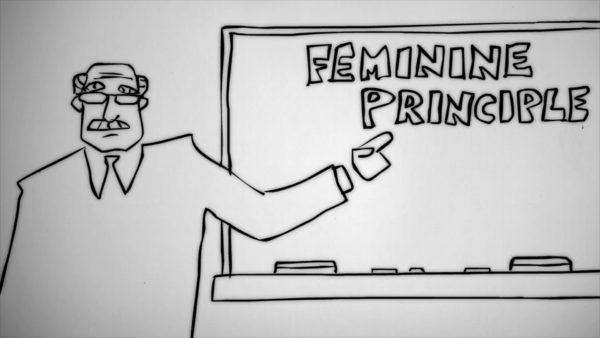
I had an “aha” moment when I came to think about the feminine qualities in each of us. Everything I had learned in the retreat in Tepoztlán came flooding in from my memory, making me realize that all this time I was not in search of more knowledge on women, I was actually in search for the feminine. My documentary quickly switched its focus from empowering women, to promoting a journey of truth and self-knowledge in all individuals.
It is not enough for women to try to become more masculine just because that is the only way our society values success. In the same way, it is not enough for a man to feel he must have more money than a country itself just because that is the only way our culture accepts him as worthy. Just because we cannot monetize our passions, it does not mean they do not have value. In so far as we promote unwholesome behaviors and perspectives, our world will remain divided, ignorant, and fearful of the “other”.
I named my documentary ‘Ensoulment’ because in religious debates, it is the term used to describe the exact moment when the soul enters an embryo in the early stages of pregnancy. When you place the spotlight on a balanced lifestyle, masculine and feminine in constant collaboration, you create the tools you need to connect different parts of yourself that seemed foreign to one another before. You begin to see yourself as one. As a result, you begin seeing the world as one whole piece as well, a metaphoric ensoulment of your persona.
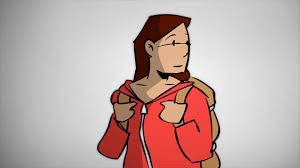
In a biblical sense, it is the moment that God, whoever that may be for you, breathes life into your nostrils and you become a living soul. It is nirvana in the Buddhist tradition. It is self-actualization in Maslow’s hierarchy of needs. No longer is it about men or women, it is about the animals (us included) on this planet. No longer is it about what job you have, it is about finding meaning in a universe we know so little about. No longer is it about who can test better in school, it is about collectively bringing something forth to this world and make it a better place.
Towards the end of my project, film and book, what I found to be most important, not only in gender equality, but in our view towards the environment, politics, relationships, our bodies, the workforce, and every aspect of life, is that change comes from the inside out. Like Spiderman’s uncle said, “with great power, comes great responsibility”. The bigger the endeavor, the heavier the responsibility we have to change inwardly towards our true calling. Perhaps, more simply put, I will use Buddha’s words to say, “Be the change you want to see in the world,” and humbly add, “and don’t forget yourself in the process.”
 Lorís Simón Salum is a psychotherapist in private practice in Houston, TX. She is the author of Ensoulment: Exploring the Feminine Principle in Western Culture (2016), as well as the film director of the multi award-winning documentary Ensoulment: A Diverse Analysis of the Feminine in Western Culture (2013). She was the Creative Director for Literal Magazine for over 10 years. Some of her projects included Literally Short Film Festival, Literal’s short international film festival, and Literally Everything, Literal’s podcast. You can find her at www.lorissimon.com.
Lorís Simón Salum is a psychotherapist in private practice in Houston, TX. She is the author of Ensoulment: Exploring the Feminine Principle in Western Culture (2016), as well as the film director of the multi award-winning documentary Ensoulment: A Diverse Analysis of the Feminine in Western Culture (2013). She was the Creative Director for Literal Magazine for over 10 years. Some of her projects included Literally Short Film Festival, Literal’s short international film festival, and Literally Everything, Literal’s podcast. You can find her at www.lorissimon.com.
©Literal Publishing
Cuando tenía 19 años, mi madre me pidió que me uniera a ella en un retiro para mujeres de la Fundación Marion Woodman, en un lugar mágico llamado Tepoztlán, México, lo que lo hacía aún más atractivo. Y acepté la oferta, por supuesto. En ese momento recuerdo haber estado muy mal y creía que cualquier cosa me podría ayudar. No intentaré explicar los ejercicios y conversaciones que mantuvimos por temor a perder el “poder” que tuvieron sobre mí. Sin embargo, diré que me conmovieron de manera tal que nada antes ni nunca lo había hecho.
Años después, aún no puedo dejar de pensar en esta experiencia; me apasiona el tema de las mujeres, el género y el feminismo. Hay una parte de mí que sigue pensando: si todas las mujeres pudieran pasar por el mismo cambio por el que yo pasé, nadie nos detendría. Si ellas pudieran tomarse el tiempo para entender sinceramente quiénes eran, no solo en relación con otra persona, sino en el contexto de este universo, comenzarían a tomar el asunto en sus propias manos. Esta esperanza fue lo que me motivó a crear un documental.
Al ponerme manos a la obra, me di cuando de que todo lo que estaba sugiriendo para las mujeres también se aplicaba a los hombres y de la misma manera. Entonces llamó mi atención el hecho de que el problema no se trataba en absoluto del género; el origen del problema estaba en la forma unilateral de ver el mundo y desde la cual nuestra sociedad ha elegido ver el mundo: como blanco o negro, hombre o mujer, débil o fuerte, el uno u lo otro…
En la década de 1920, en su libro A Room of One’s Own , la autora Virginia Wolf fue una de las tantas que percibió dos poderes “de género” que presiden a cada hombre y mujer, donde lo normal sería que los géneros “vivieran en armonía entre sí, colaborando espiritualmente”. Por esa misma época, Jung acuñó los términos latinos para estas diferentes perspectivas como el ánima y ánimus, o en términos occidentales, lo femenino y lo masculino, respectivamente.
En las tradiciones orientales los ven como yin y yang, aunque se han agregado otros términos a estos conceptos, como la conciencia difusa frente a la enfocada, el pensamiento del hemisferio derecho frente al pensamiento del izquierdo, y así sucesivamente. Como un ejemplo rápido, una perspectiva o comportamiento masculino está relacionado con la estructuración, la creación de jerarquías, la racionalidad y la formación de límites. Creo que este enfoque masculino ha llegado a ser el principal objetivo a través del cual vemos nuestras vidas. Se ha convertido en el punto de referencia para lo que consideramos verdadero y valioso. Sólo hay que considerar en aquello que pensamos cuando escuchamos la palabra “éxito”. Si esa palabra nos lleva a imaginar una situación relacionada con altas ganancias, altos niveles de popularidad o intelectualidad, entonces mi lector se ha ganado el premio gordo. En su libro Un héroe con mil caras, el autor Joseph Campbell ofrece una distinción sobre cómo percibimos la verdad en nuestra cultura:
Esta doctrina de la incomunicabilidad de la verdad, que está más allá de los nombres y las formas, es básica para las grandes tradiciones tanto orientales como platónicas. Considerando que las verdades de la ciencia son transmisibles, siendo hipótesis demostrables fundadas en hechos observables; el ritual, la mitología y la metafísica son guías al borde de una iluminación trascendente. El paso final que debe tomar cada uno en su propia experiencia silenciosa.
Disfruto profundamente esa cita porque expresa un punto de vista femenino que no reconocemos. Las cualidades femeninas se relacionan con el ritual, la mitología, la creatividad, la capacidad de nutrir, la receptividad, el caos y, de hecho, históricamente, con las mujeres. Cuando nos volcamos hacia nuestro lado femenino, no hay respuestas correctas o incorrectas; de hecho, no hay palabras para las respuestas en absoluto.

Se trata de cultivar nuestros propios potenciales sin la necesidad de sacar provecho de ello o juzgarlo de ninguna manera. Aquí es donde hemos llegado a una falla como sociedad y por error o falta de información, lo hemos relacionado con un problema de género. Creo entender que como hemos devaluado las cualidades femeninas en nuestra cultura, hemos llegado a devaluar también a las mujeres junto con aquellas. Vemos estas cualidades como “débiles” o “inútiles”. Lo curioso es que nuestro estado básico de existencia es emocional antes de ser racional. Cada uso que damos a nuestra lógica tiene el objetivo de satisfacer una necesidad emocional. No somos robots.
Sin embargo, estamos tan consumidos por la productividad, el crecimiento económico y el estatus social que hemos dejado el resto de nuestro lado humano en el inconsciente. Hemos olvidado la parte de nosotros que no usa el lenguaje o la razón para entender el mundo. Nos hemos entrenado para ignorar lo que sentimos y percibimos a través de nuestra intuición. Esta es la parte principal en nosotros que no entiende de fronteras, ni género, ni afiliaciones religiosas, etc.; es la parte que reconoce y simpatiza con el Otro.
Tuve un momento “aha”, una suerte de epifanía cuando comencé a pensar en las cualidades femeninas de cada uno de nosotros. Todo lo que había aprendido en el retiro en Tepoztlán vino de mis recuerdos, haciéndome comprender que todo este tiempo no había estado en busca del feminismo, en realidad estaba en busca de lo femenino. Mi documental se desplazó rápidamente de tratar de empoderar a las mujeres, a promover un viaje de verdad y autoconocimiento en todas las personas. Mi proyecto buscaba el reconocimiento de uno mismo, muy al estilo griego.
No es suficiente que las mujeres intenten volverse masculinas sólo porque esa es la única forma en que nuestra sociedad valora el éxito. De la misma manera, que tampoco es suficiente que un hombre sienta que debe tener más dinero sólo porque esa es la única forma en que nuestra cultura lo acepta como digno. El hecho de que no podamos monetizar nuestras pasiones, no significa que no tengan valor. En la medida en que promovamos comportamientos y perspectivas poco sanas, nuestro mundo permanecerá dividido, ignorante y temeroso del Otro.
Titulé mi documental Ensoulment porque, en los debates religiosos, ese es el término utilizado para describir el momento exacto en que el alma entra en un embrión en las primeras etapas del embarazo. Cuando se pone el centro de atención en un estilo de vida más equilibrado, donde lo masculino y lo femenino coexisten en colaboración constante, se crean las herramientas necesarias para conectar diferentes partes de uno mismo que antes parecían ajenas entre sí. Se comienza a verse a uno mismo como un ser integrado. Como resultado, uno empieza percibir el mundo como un todo, es decir, desde una perspectiva unitaria en la que el alma y cuerpo son uno mismo —tal como el título de mi documental.
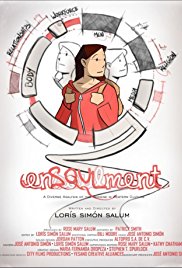
En un sentido bíblico, es el momento en que Dios, quienquiera que sea para el lector, respira vida y se convierte en un alma viviente. Es el nirvana de la tradición budista. Es la autorrealización en la jerarquía de necesidades de Maslow. Ya no se trata de hombres o mujeres, se trata de todas las especies (incluidos nosotros) en este planeta. Ya no se trata de qué trabajo se tiene, se trata de encontrar significado en un universo del que sabemos muy poco. Ya no se trata de quién puede ser mejor en la escuela, se trata de aportar algo en conjunto a este mundo y hacerlo un lugar mejor.
Hacia el final de mi proyecto, es decir, de la película y el libro que surgió a propósito del documental, lo que encontré más importante, no solo respecto a la igualdad de género sino en cómo percibimos el medio ambiente, la política, las relaciones con los demás, nuestra relación con nuestro propio cuerpo, el campo de trabajo y todos los aspectos de la vida, es que el cambio viene de dentro hacia afuera. Y como diría el tío de El hombre araña: “con el poder, viene la responsabilidad”. Mientras más grande sea el reto, más importante es la responsabilidad que tenemos de cambiar interiormente para atender nuestro llamado. Tal vez, en términos más simples, usaré las palabras de Buda para decirlo: “Sé el cambio que deseas ver en el mundo” y, humildemente podría agregar: “y no te olvides de ti mismo en el proceso”.
 Lorís Simón Salum. Escritora, directora y coproductora de Ensoulment: Un Análisis del Principio Femenino en la Cultura Occidental (2013), documental galardonado con diversos premios internacionales. Es autora de Ensoulment: Explorando el Principio Femenino en la Cultura Occidental (Chiron Publications, 2017). Además de seguir rodando cortometrajes, Lorís es la directora del Festival Literally Short, un festival internacional de cortometrajes. Su Twitter es @LorisSimonSalum
Lorís Simón Salum. Escritora, directora y coproductora de Ensoulment: Un Análisis del Principio Femenino en la Cultura Occidental (2013), documental galardonado con diversos premios internacionales. Es autora de Ensoulment: Explorando el Principio Femenino en la Cultura Occidental (Chiron Publications, 2017). Además de seguir rodando cortometrajes, Lorís es la directora del Festival Literally Short, un festival internacional de cortometrajes. Su Twitter es @LorisSimonSalum
© Literal Publishing. Queda prohibida la reproducción total o parcial de esta publicación. Toda forma de utilización no autorizada será perseguida con lo establecido en la ley federal del derecho de autor.


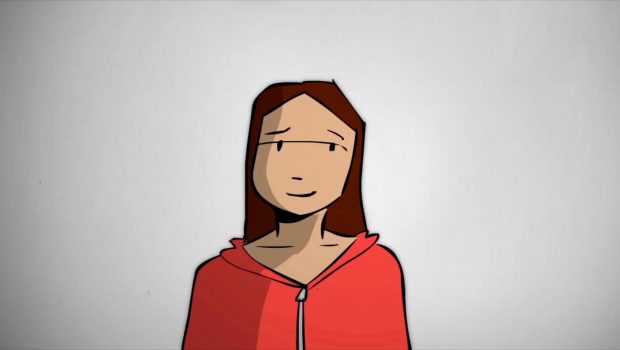
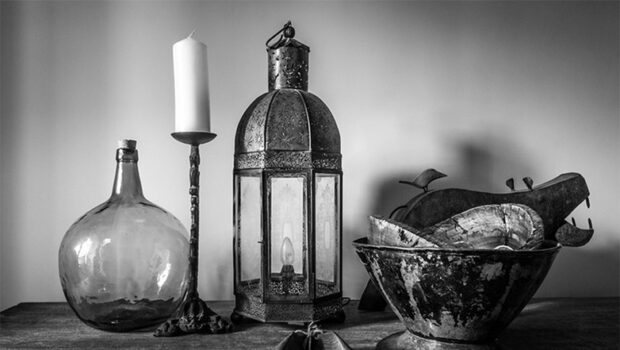
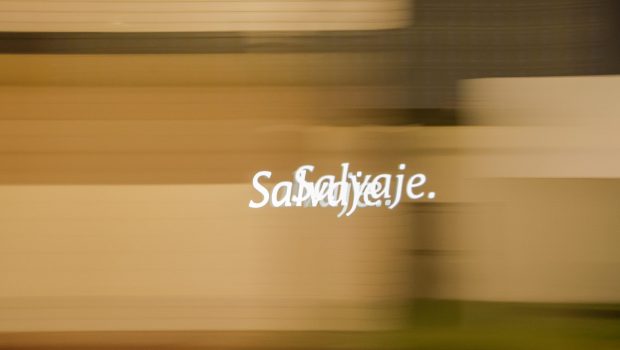
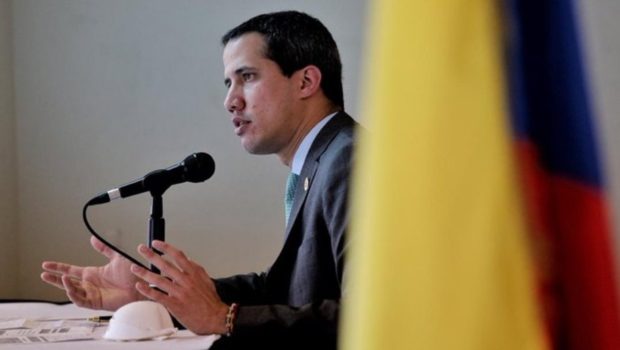
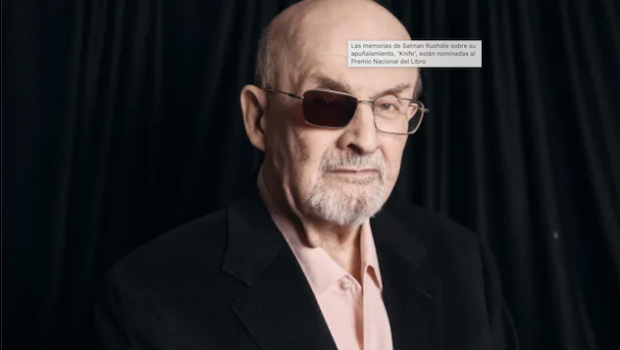
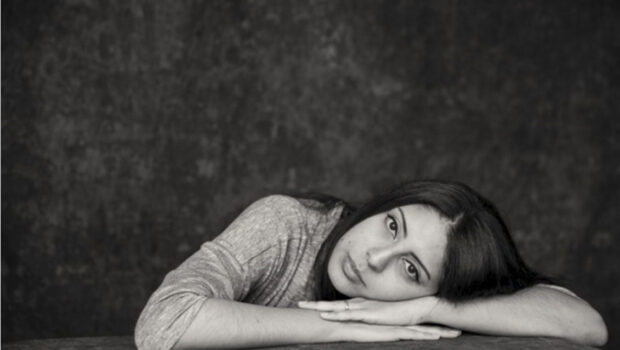
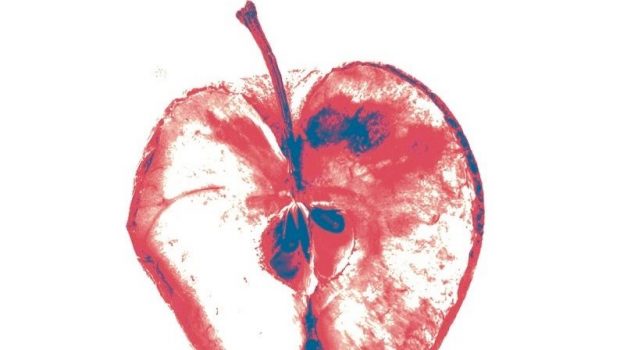
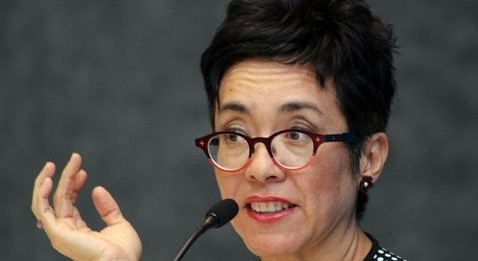

My life always felt purposeful. I had a wonderful hard, fast paced, demanding, but two fulfilling careers. Raised my young brother and child in a challenging world alone. I have always had the words, or wisdom. But I have been lost these past few years. My words are still silent to me and hiding. But this was beautiful what you’ve done. I needed this so much as there are many of us that do. What we tangle up in our heads are as important. Not in the scheme of things. Thank you.